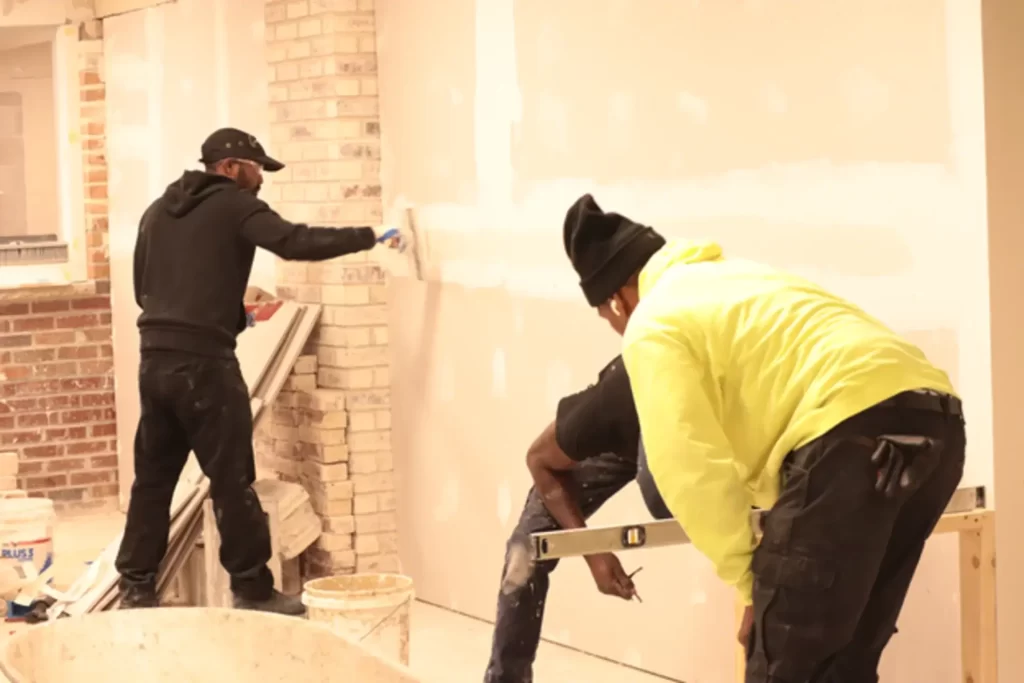For those interested in a career in construction, the drywall industry provides various job options. Any construction project must include plasterboard installation and finishing; a career in this field may be both fulfilling and financially secure. Let’s talk about how to develop a successful career in the drywall industry in this post, covering the knowledge, training, and experience needed for different positions.
Understanding the plasterboard sector and its extent is crucial before beginning a career. Gypsum board, plasterboard, or drywall—other names for this material—is installed and finished in the drywall industry and is used for interior walls and ceilings. Producing, distributing, and marketing plasterboard materials are also included in the plasterboard sector. Professionals in this field must adhere to strict regulations, including construction rules.
Drywall installation and finishing require specific skills that can be developed through formal education, on-the-job training, or apprenticeships. These skills include:
Drywall apprentices must pay close attention to detail to ensure that the finished product is seamless and meets the highest quality standards.
Installing and finishing drywall can be physically demanding, requiring professionals to have adequate strength and stamina.
Drywall professionals must understand the technical aspects of drywall installation and finishing, including the ability to read blueprints and use relevant tools and equipment.
Effective communication skills are essential for drywall workers to work collaboratively with other construction team members.
Drywall professionals must be able to identify and solve problems that may occur during the installation and finishing process.
While a high school diploma or equivalent is the minimum requirement for most entry-level positions in the drywall industry, some employers may prefer candidates with post-secondary education or drywall training. Relevant programs include:

Individuals can acquire the skills and information required for a career in the plasterboard business by combining on-the-job training and classroom learning.
The technical facets of installing and finishing plasterboard are part of the comprehensive understanding of the building business these drywall programs provide for their pupils.
Building a successful career in the plasterboard sector requires experience. Entry-level jobs, like that of a plasterboard assistant or apprentice, offer the chance to pick up skills from seasoned experts while getting real-world experience. More specialized positions, such as plasterboard foreman or estimator, may become available to individuals as their drywall careers.
Building a professional network can benefit career growth in the drywall industry. Attending events and connecting with other professionals on social media can help individuals build relationships and stay up-to-date with industry trends.
Obtaining professional certifications can be an excellent way to demonstrate expertise and advance in the drywall industry.
This accreditation is provided by the AWCI, which acknowledges people who have shown their expertise in drywall installation.

The AWCI gives this certification and recognizes people who have demonstrated proficiency in drywall finishing.
OSHA offers a range of certifications demonstrating knowledge and proficiency in workplace safety.
The drywall industry constantly evolves, with new techniques, materials, and technologies emerging regularly. Stay informed by reading industry publications, attending training sessions, and participating in drywall professional development opportunities.
If you have the technical skills and business acumen, starting your own drywall business can be a lucrative and rewarding career move. Conduct market research, develop a business plan, and secure financing to launch your business.
In summary, building a successful drywall industry career requires combining technical skills, business acumen, networking, and staying up-to-date on industry trends. By taking these steps, you can position yourself for success in this thriving industry.
Read More